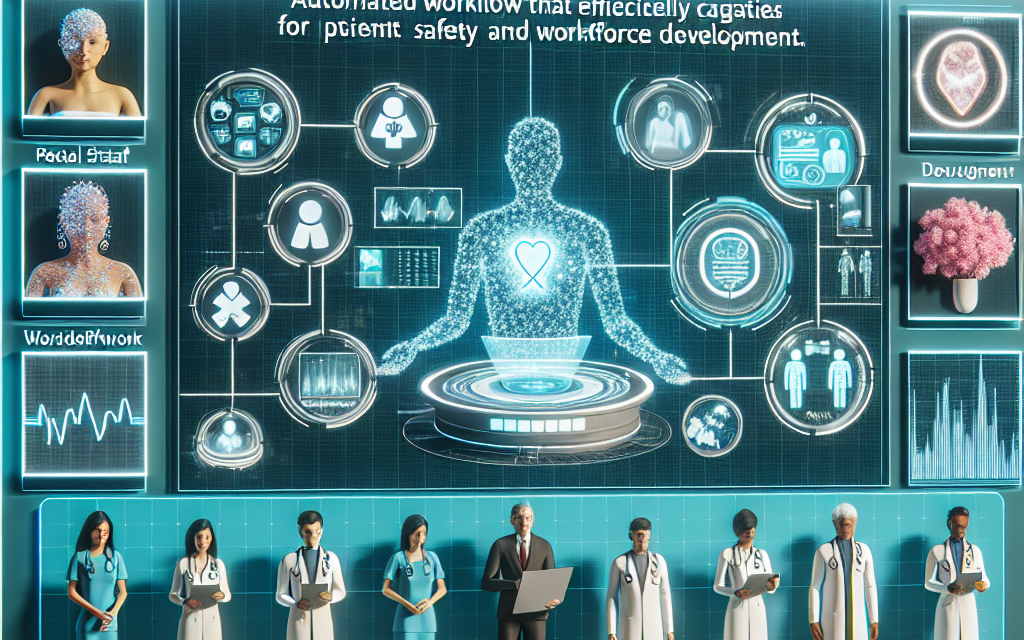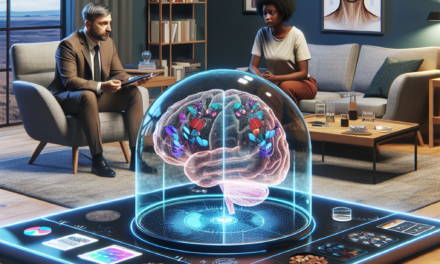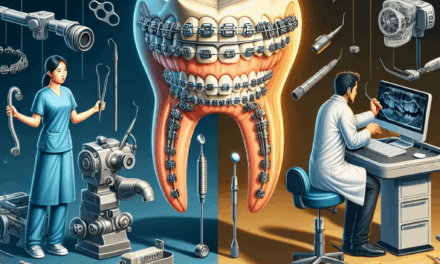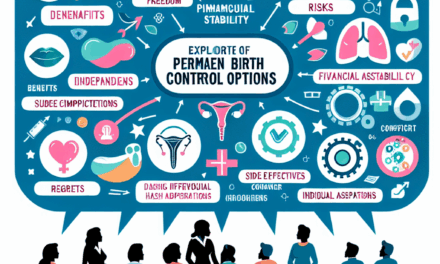Enhancing Workflow, Workforce Development, and Patient Safety with AI by 2025
The integration of Artificial Intelligence (AI) into healthcare is transforming the landscape of patient care, workforce development, and operational efficiency. As we approach 2025, the potential for AI to enhance workflow, improve workforce capabilities, and ensure patient safety is becoming increasingly evident. This article explores these dimensions in detail, providing insights into how AI can be leveraged to create a more efficient and safer healthcare environment.
1. The Role of AI in Streamlining Healthcare Workflow
Healthcare systems are often burdened by inefficiencies that can lead to delays in patient care and increased operational costs. AI technologies are emerging as powerful tools to streamline workflows, reduce administrative burdens, and enhance overall efficiency.
1.1 Automating Administrative Tasks
One of the most significant areas where AI can enhance workflow is in automating administrative tasks. Healthcare providers spend a substantial amount of time on paperwork, scheduling, and billing. AI-driven solutions can automate these processes, allowing healthcare professionals to focus more on patient care.
- Scheduling: AI algorithms can analyze patient data and preferences to optimize appointment scheduling, reducing no-show rates and improving patient flow.
- Billing: AI can streamline the billing process by automating claims submissions and identifying discrepancies, which can lead to faster reimbursements.
- Documentation: Natural Language Processing (NLP) can assist in transcribing and organizing clinical notes, making it easier for healthcare providers to maintain accurate records.
For example, a study by the American Medical Association found that physicians spend nearly two hours on administrative tasks for every hour spent on direct patient care. By implementing AI solutions, healthcare organizations can significantly reduce this burden, leading to improved job satisfaction and better patient outcomes.
1.2 Enhancing Clinical Decision-Making
AI can also play a crucial role in enhancing clinical decision-making. By analyzing vast amounts of data, AI systems can provide healthcare professionals with evidence-based recommendations, improving diagnostic accuracy and treatment plans.
- Predictive Analytics: AI can analyze patient data to predict potential health issues, allowing for early intervention and personalized treatment plans.
- Clinical Decision Support Systems (CDSS): These systems can provide real-time recommendations based on patient data, helping clinicians make informed decisions quickly.
- Diagnostic Imaging: AI algorithms can analyze medical images with high accuracy, assisting radiologists in identifying abnormalities that may be missed by the human eye.
A notable example is the use of AI in radiology, where algorithms have demonstrated the ability to detect conditions such as pneumonia and breast cancer with accuracy comparable to that of experienced radiologists. This not only enhances diagnostic capabilities but also reduces the time required for image analysis.
1.3 Improving Patient Flow and Resource Allocation
Efficient patient flow is critical for healthcare facilities to operate effectively. AI can optimize resource allocation by predicting patient volumes and identifying bottlenecks in care delivery.
- Capacity Management: AI can analyze historical data to forecast patient admissions, enabling hospitals to allocate resources more effectively.
- Real-Time Monitoring: AI-powered tools can monitor patient status in real-time, alerting staff to potential issues before they escalate.
- Telehealth Integration: AI can facilitate telehealth services, allowing for remote consultations and reducing the strain on physical facilities.
For instance, a hospital in California implemented an AI-driven capacity management system that reduced patient wait times by 30% and improved bed utilization rates. This not only enhanced patient satisfaction but also optimized operational efficiency.
1.4 Enhancing Communication and Collaboration
Effective communication among healthcare teams is essential for delivering high-quality care. AI can facilitate better communication and collaboration through various tools and platforms.
- Chatbots: AI-powered chatbots can assist patients with scheduling, answering common questions, and providing information about their care.
- Collaboration Platforms: AI can enhance collaboration among healthcare professionals by providing real-time access to patient data and treatment plans.
- Language Translation: AI-driven translation tools can help bridge communication gaps between healthcare providers and patients who speak different languages.
For example, a healthcare organization in New York implemented an AI chatbot that reduced call center volume by 40%, allowing staff to focus on more complex patient inquiries. This not only improved efficiency but also enhanced the patient experience.
1.5 Data-Driven Insights for Continuous Improvement
AI can provide valuable insights into healthcare operations, enabling organizations to identify areas for improvement and implement data-driven strategies.
- Performance Metrics: AI can analyze key performance indicators (KPIs) to assess the effectiveness of care delivery and identify areas for improvement.
- Patient Feedback Analysis: AI can analyze patient feedback and satisfaction surveys to identify trends and areas for enhancement.
- Benchmarking: AI can facilitate benchmarking against industry standards, helping organizations to set realistic goals for improvement.
A case study from a leading healthcare system in Texas demonstrated that by leveraging AI for performance analysis, they were able to reduce readmission rates by 15% within a year. This not only improved patient outcomes but also reduced costs associated with readmissions.
2. Workforce Development in the Age of AI
The integration of AI into healthcare is not just about technology; it also requires a skilled workforce capable of leveraging these tools effectively. Workforce development is essential to ensure that healthcare professionals are equipped with the necessary skills to thrive in an AI-driven environment.
2.1 Upskilling Healthcare Professionals
As AI technologies continue to evolve, healthcare professionals must adapt by acquiring new skills. Upskilling initiatives are crucial for ensuring that the workforce can effectively utilize AI tools in their practice.
- Training Programs: Healthcare organizations should invest in training programs that focus on AI literacy, data analysis, and the ethical implications of AI in healthcare.
- Interdisciplinary Collaboration: Encouraging collaboration between IT professionals and healthcare providers can foster a better understanding of AI applications in clinical settings.
- Continuous Education: Ongoing education and professional development opportunities should be provided to keep healthcare professionals updated on the latest AI advancements.
For instance, a hospital in Massachusetts launched a comprehensive training program for its staff, focusing on AI applications in patient care. As a result, staff reported increased confidence in using AI tools, leading to improved patient outcomes and operational efficiency.
2.2 Fostering a Culture of Innovation
Creating a culture of innovation is essential for encouraging healthcare professionals to embrace AI technologies. Organizations should promote an environment where staff feel empowered to experiment with new tools and approaches.
- Encouraging Feedback: Organizations should actively seek feedback from staff on AI implementations and encourage suggestions for improvement.
- Recognizing Contributions: Acknowledging and rewarding staff who contribute to innovative AI solutions can motivate others to engage in similar initiatives.
- Collaboration with Startups: Partnering with AI startups can provide healthcare organizations with fresh perspectives and innovative solutions.
A healthcare system in Florida partnered with a local AI startup to develop a predictive analytics tool for patient management. The collaboration not only led to the successful implementation of the tool but also fostered a culture of innovation within the organization.
2.3 Addressing Ethical Considerations
As AI becomes more integrated into healthcare, ethical considerations must be addressed. Workforce development should include training on the ethical implications of AI use in patient care.
- Bias in AI Algorithms: Healthcare professionals should be educated about the potential for bias in AI algorithms and the importance of using diverse datasets.
- Patient Privacy: Training on data privacy regulations and best practices for handling patient data is essential to ensure compliance and build trust.
- Informed Consent: Healthcare providers should understand the importance of obtaining informed consent when using AI tools in patient care.
A case study from a leading academic medical center highlighted the importance of ethical training in AI implementation. By incorporating ethical considerations into their training programs, they were able to build trust among patients and staff, leading to successful AI adoption.
2.4 Enhancing Interdisciplinary Collaboration
AI implementation in healthcare requires collaboration among various disciplines, including clinical staff, data scientists, and IT professionals. Fostering interdisciplinary collaboration is essential for successful AI integration.
- Cross-Functional Teams: Establishing cross-functional teams can facilitate knowledge sharing and ensure that diverse perspectives are considered in AI projects.
- Joint Training Sessions: Conducting joint training sessions for clinical and technical staff can enhance understanding and collaboration.
- Shared Goals: Organizations should establish shared goals for AI initiatives to align efforts across disciplines.
An example of successful interdisciplinary collaboration can be seen in a healthcare organization in Illinois that formed a team comprising clinicians, data analysts, and IT specialists to develop an AI-driven patient monitoring system. This collaborative approach led to a more effective solution that improved patient outcomes.
2.5 Preparing for Future Workforce Needs
As AI continues to evolve, healthcare organizations must anticipate future workforce needs and adapt their development strategies accordingly. This involves understanding emerging roles and skill sets required in an AI-driven healthcare landscape.
- Identifying Emerging Roles: Organizations should identify new roles that may emerge as AI technologies advance, such as AI specialists and data analysts.
- Partnerships with Educational Institutions: Collaborating with universities and training programs can help ensure that the future workforce is equipped with the necessary skills.
- Succession Planning: Organizations should develop succession plans to ensure that skilled professionals are available to fill critical roles as the workforce evolves.
A healthcare organization in Ohio partnered with a local university to develop a curriculum focused on AI in healthcare. This initiative not only prepared students for future roles but also created a pipeline of talent for the organization.
3. Ensuring Patient Safety through AI Innovations
Patient safety is a paramount concern in healthcare, and AI technologies have the potential to significantly enhance safety measures. By leveraging AI, healthcare organizations can reduce errors, improve monitoring, and enhance overall patient care.
3.1 Reducing Medication Errors
Medication errors are a leading cause of patient harm in healthcare settings. AI can play a crucial role in reducing these errors through various applications.
- Automated Prescription Systems: AI-driven systems can analyze patient data and medication interactions to provide alerts for potential errors during the prescribing process.
- Smart Dispensing Systems: Automated dispensing systems can ensure that the correct medication is provided to patients, reducing the risk of human error.
- Patient Education: AI chatbots can provide patients with information about their medications, including potential side effects and interactions.
A study published in the Journal of Patient Safety found that implementing an AI-driven medication management system reduced medication errors by 50% in a hospital setting. This not only improved patient safety but also enhanced overall care quality.
3.2 Enhancing Patient Monitoring
Continuous patient monitoring is essential for identifying potential complications early. AI technologies can enhance monitoring capabilities, ensuring timely interventions.
- Wearable Devices: AI-powered wearable devices can track vital signs and alert healthcare providers to any abnormalities in real-time.
- Remote Patient Monitoring: AI can facilitate remote monitoring of patients with chronic conditions, allowing for timely interventions and reducing hospital readmissions.
- Predictive Analytics: AI algorithms can analyze patient data to predict potential complications, enabling proactive care.
An example of successful patient monitoring can be seen in a healthcare organization in Washington that implemented an AI-driven remote monitoring system for heart failure patients. The system reduced hospital readmissions by 30% and improved patient outcomes significantly.
3.3 Improving Surgical Safety
Surgical procedures carry inherent risks, but AI technologies can enhance surgical safety through various applications.
- Robotic Surgery: AI-powered robotic systems can assist surgeons in performing complex procedures with greater precision, reducing the risk of complications.
- Preoperative Risk Assessment: AI can analyze patient data to assess surgical risks, allowing for better preoperative planning.
- Intraoperative Monitoring: AI can monitor vital signs and alert surgical teams to any changes during procedures, ensuring timely interventions.
A case study from a leading surgical center in California demonstrated that the use of AI-assisted robotic surgery reduced complications by 25% compared to traditional surgical methods. This not only improved patient safety but also enhanced recovery times.
3.4 Enhancing Infection Control
Infection control is a critical aspect of patient safety, and AI can play a significant role in enhancing infection prevention measures.
- Predictive Analytics for Outbreaks: AI can analyze data to predict potential infection outbreaks, allowing healthcare organizations to implement preventive measures proactively.
- Monitoring Compliance: AI can monitor compliance with infection control protocols, providing real-time feedback to healthcare staff.
- Environmental Monitoring: AI-powered sensors can monitor environmental conditions in healthcare settings to identify potential infection risks.
A healthcare organization in New Jersey implemented an AI-driven infection control system that reduced hospital-acquired infections by 40% within a year. This not only improved patient safety but also reduced healthcare costs associated with treating infections.
3.5 Enhancing Patient Engagement and Education
Engaging patients in their care is essential for improving safety and outcomes. AI technologies can enhance patient engagement through personalized education and support.
- Personalized Health Information: AI can provide patients with tailored health information based on their conditions and treatment plans.
- Virtual Health Assistants: AI-powered virtual assistants can answer patient questions and provide reminders for medication and appointments.
- Patient Feedback Systems: AI can analyze patient feedback to identify areas for improvement in care delivery.
A case study from a healthcare organization in Texas demonstrated that implementing an AI-driven patient engagement platform improved patient satisfaction scores by 20%. This not only enhanced patient safety but also fostered a culture of collaboration between patients and providers.
4. The Future of AI in Healthcare: Trends and Predictions
As we look toward 2025, several trends and predictions are emerging regarding the future of AI in healthcare. Understanding these trends can help organizations prepare for the evolving landscape of healthcare delivery.
4.1 Increased Adoption of Telehealth Solutions
The COVID-19 pandemic accelerated the adoption of telehealth solutions, and this trend is expected to continue as patients and providers recognize the benefits of remote care.
- AI-Enhanced Telehealth: AI technologies will play a crucial role in enhancing telehealth services by providing real-time data analysis and decision support.
- Remote Monitoring Integration: Telehealth platforms will increasingly integrate remote monitoring capabilities, allowing for comprehensive patient management.
- Patient-Centric Care: Telehealth will enable more personalized care, as patients can access services from the comfort of their homes.
A survey conducted by the American Telemedicine Association found that 70% of patients expressed a desire to continue using telehealth services post-pandemic. This indicates a significant shift in patient preferences and expectations regarding healthcare delivery.
4.2 Advancements in Predictive Analytics
Predictive analytics is poised to revolutionize healthcare by enabling proactive interventions and personalized care plans.
- Risk Stratification: AI algorithms will increasingly be used to stratify patients based on their risk profiles, allowing for targeted interventions.
- Population Health Management: Predictive analytics will play a crucial role in managing population health by identifying trends and potential health issues within communities.
- Personalized Treatment Plans: AI will enable the development of personalized treatment plans based on individual patient data and preferences.
A case study from a healthcare organization in Michigan demonstrated that implementing predictive analytics for population health management reduced emergency department visits by 25%. This highlights the potential of predictive analytics to improve patient outcomes and reduce healthcare costs.
4.3 Integration of AI with Electronic Health Records (EHRs)
The integration of AI with EHR systems is expected to enhance data accessibility and usability for healthcare providers.
- Data-Driven Insights: AI will enable EHR systems to provide real-time insights and recommendations based on patient data.
- Streamlined Documentation: AI-powered tools will assist in automating documentation processes, reducing administrative burdens on healthcare providers.
- Interoperability: AI will facilitate interoperability between different EHR systems, allowing for seamless data sharing across healthcare organizations.
A survey conducted by the Healthcare Information and Management Systems Society (HIMSS) found that 80% of healthcare organizations plan to invest in AI technologies to enhance their EHR systems by 2025. This indicates a growing recognition of the importance of AI in improving data management and patient care.
4.4 Focus on Patient-Centric Care Models
The shift toward patient-centric care models is expected to continue, with AI playing a crucial role in enhancing patient engagement and satisfaction.
- Personalized Care Plans: AI will enable the development of personalized care plans that consider individual patient preferences and needs.
- Enhanced Communication: AI-powered tools will facilitate better communication between patients and providers, fostering collaboration in care delivery.
- Patient Empowerment: AI will empower patients to take an active role in their care through personalized education and support.
A study published in the Journal of Medical Internet Research found that patient engagement initiatives enhanced by AI led to improved health outcomes and increased patient satisfaction. This underscores the importance of patient-centric care models in the future of healthcare.
4.5 Ethical Considerations and Regulatory Frameworks
As AI technologies continue to evolve, ethical considerations and regulatory frameworks will become increasingly important in healthcare.
- Addressing Bias: Organizations will need to implement strategies to address bias in AI algorithms and ensure equitable access to care.
- Data Privacy Regulations: Compliance with data privacy regulations will be essential to build trust among patients and protect sensitive information.
- Ethical Guidelines: Developing ethical guidelines for AI use in healthcare will be crucial to ensure responsible implementation and use of these technologies.
A report from the World Health Organization (WHO) emphasizes the importance of ethical considerations in AI implementation, highlighting the need for transparency and accountability in AI-driven healthcare solutions. This indicates a growing recognition of the ethical implications of AI in healthcare delivery.
5. Conclusion: The Path Forward for AI in Healthcare
The integration of AI into healthcare has the potential to revolutionize workflow, workforce development, and patient safety by 2025. As organizations continue to embrace AI technologies, it is essential to focus on several key areas:
- Streamlining Workflow: Automating administrative tasks, enhancing clinical decision-making, and improving patient flow are critical for operational efficiency.
- Workforce Development: Upskilling healthcare professionals, fostering a culture of innovation, and addressing ethical considerations are essential for preparing the workforce for an AI-driven future.
- Ensuring Patient Safety: Leveraging AI to reduce medication errors, enhance patient monitoring, and improve surgical safety will be crucial for safeguarding patient well-being.
- Embracing Future Trends: Organizations must stay informed about emerging trends in telehealth, predictive analytics, and patient-centric care models to remain competitive in the evolving healthcare landscape.
- Addressing Ethical Considerations: Developing ethical guidelines and regulatory frameworks will be essential for ensuring responsible AI implementation in healthcare.
As we move toward 2025, the successful integration of AI into healthcare will depend on collaboration among stakeholders, including healthcare providers, technology developers, and regulatory bodies. By working together, we can harness the power of AI to create a more efficient, effective, and safe healthcare system for all.





